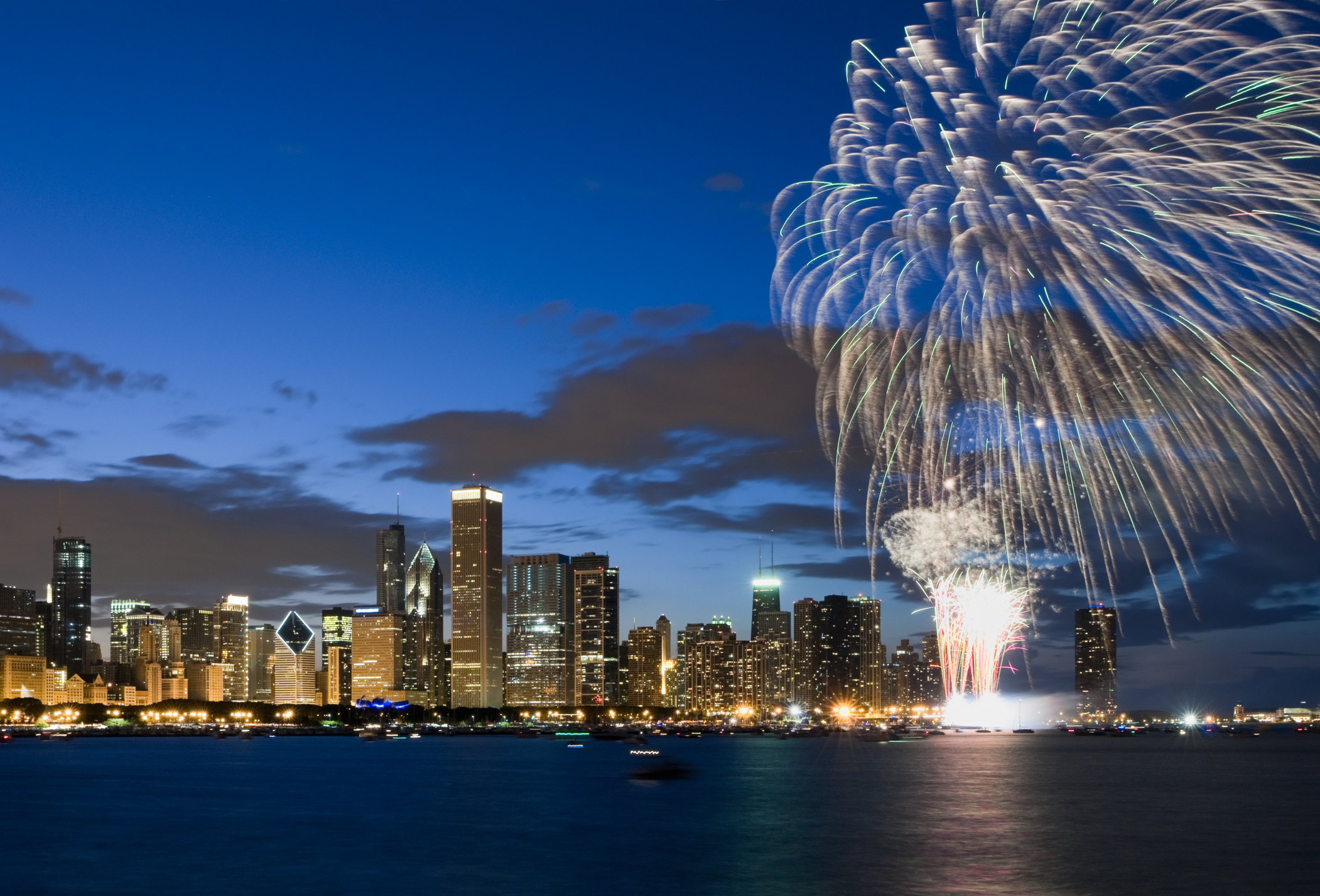Growing up, the 3rd of July was always the real Independence Day. That’s when the city of Chicago would have their official fireworks display, I guess so as not to compete with the smaller, suburban displays that would go off the next day. So every July 3rd, my family would go on my grandfather’s boat, The Eileen, named lovingly for my grandmother.
We’d take it out on Lake Michigan and anchor it in a good spot to watch the fireworks. And then I’d complain that a tree was blocking my view, or my brother’s head was blocking my view, or that it was too hot or too cold or I was hungry or tired or any other number of things that could put a thorn in the side of a little girl.
Minutes before the display was supposed to start, my grandfather would get on the transistor radio he used to communicate with other boaters on the lake and ask which station would be playing Tchaikovsky’s 1812 Overture. Usually there was a live performance happening somewhere in the city, timed to sync up with the fireworks. And so we’d tune to that channel and blast it through the boat’s speakers. It would start out slow, and I would still be fidgety and grumpy and complainy, and what was the big deal about fireworks anyway? They were the same every year, just little flames in the sky, and the ones that were supposed to look like smiley faces never really looked like smiley faces.
But then the music would pick up with intensity, the strings swelling and the horns blaring, the low rumble of the drums rolling in, and then came the cannons, bombs coming out of the speaker perfectly timed with the blasts in the air, and I’d be enthralled–no more complaints, no more nudging my brothers out of the way–just lying on my back, looking up to the sky while fireworks lit up the entire Chicago skyline, my grandfather humming along to the tune. I was happy, perfectly so.
My grandfather passed away five years ago, early in the morning on July 5th. I flew home from New York as fast as I could on the 4th, when I was told there wasn’t much time left, but by the time I got there, he was no longer conscious. Still I was told he could hear my voice, so I sat by his side and held his hand and told him I loved him. What else was there to say?
By then the city of Chicago had changed their fireworks to happen on the actual Fourth of July, and so I watched them from his window, 48 floors above Navy Pier, while the room remained nearly silent with whispers and tears. I stayed there with my parents until 1 a.m., when it seemed like nothing much was going to change. By the time I woke up the next morning, he was gone.
Today I’m sitting in a coffee shop in Brooklyn, writing this essay, crying while I listen to the 1812 Overture blasting in my headphones. (The woman sitting two tables away glares over here every time a bomb goes off.) The Eileen is long gone–sold a couple years before he passed away, when he was no longer healthy enough to man the ship–though very thankfully her namesake, my grandmother, is still here. She’s in Chicago, with my parents and brothers and now my brothers’ kids, while I’m across the country. And it’s holidays like these when I miss them most, when I wish I could go back in time for one more boat ride.
I promise I wouldn’t complain. I’d be so good. The bombs would go off and I’d lie there, smiling.



